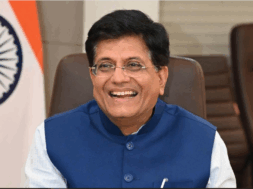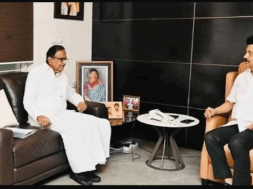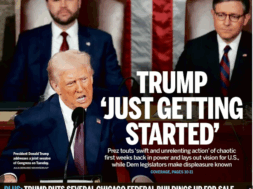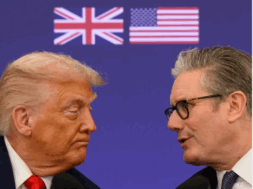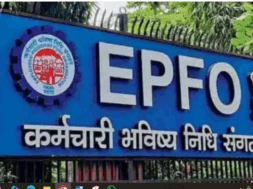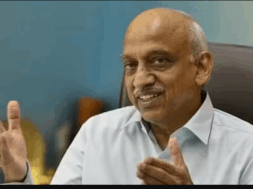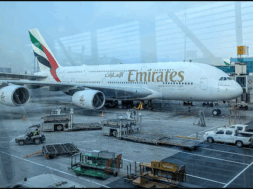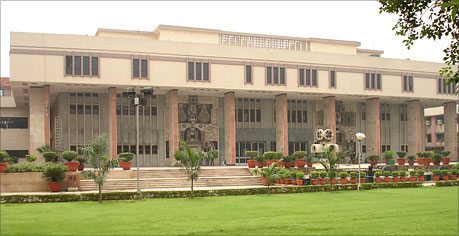
NEW DELHI, June 15: The Delhi High Court made scathing observations against the government on Tuesday while granting bail to three Pinjra Tod activists who were being held for more than a year under the Unlawful Activities (Prevention) Act (UAPA) for their alleged involvement in the Delhi riots in protest against the Citizenship Amendment Act (CAA).
The High Court granted bail Devangana Kalita, Natasha Narwal and Jamia student Asif Iqbal Tanha, who were arrested in May, last year, under the stringent UAPA in connection with the Delhi riots.
“It seems that in its anxiety to suppress dissent, in the mind of the State, the line between the constitutionally guaranteed right to protest and terrorist activity seems to be getting somewhat blurred. If this mindset gains traction, it would be a sad day for democracy,” observed a bench of Justice Siddharth Mridul and Justice Anup Jairam Bhambhani.
The court also stated that the government cannot be “allowed to cry wolf” and “draw inference” when no direct evidence exists.
“We find ourselves unpersuaded and unconvinced with this submission since we find it is not founded on any specific factual allegation and we are of the view that the mere use of alarming and hyperbolic verbiage in the subject charge-sheet will not convince us otherwise. In fact, upon a closer scrutiny of the submissions made on behalf of the State, we find that the submissions are based upon inferences drawn by the prosecuting agency and not upon factual allegations,” the Delhi High Court said.
They were earlier granted bail in two other FIRs. In this case, UAPA charges were also added. The court also questioned the imposition of these charges.
“Notwithstanding the fact that the definition of ‘terrorist act’ in Section 15 of UAPA is wide and even somewhat vague, the phrase must partake of the essential character of terrorism and the phrase ‘terrorist act’ cannot be permitted to be casually applied to criminal acts or omissions that fall squarely within the definition of conventional offences as defined inter alia under the IPC,” the court observed.
Citing Supreme Court judgments, the Delhi High Court said even violent protests were not equal to terrorism.
“Protests against governmental and Parliamentary actions are legitimate; and though such protests are expected to be peaceful and non-violent, it is not uncommon for protesters to push the limits permissible in law. The making of inflammatory speeches, organising chakkajams, and such like actions are not uncommon when there is widespread opposition to governmental or Parliamentary actions,” the court said.
“Even if we assume for the sake of argument, without expressing any view thereon, that in the present case, inflammatory speeches, chakkajams, instigation of women protesters and other actions, to which the appellant is alleged to have been a party, crossed the line of peaceful protests permissible under our Constitutional guarantee, that however would yet not amount to commission of a ‘terrorist act’ or a ‘conspiracy’ or an ‘act preparatory’ to the commission of a terrorist act as understood under the UAPA,” observed the court.
The court also noted that no specific act or statement had been attributed to the accused activists, apart from having participated in the protests.
“We are afraid, that in our opinion, shorn-off the superfluous verbiage, hyperbole and the stretched inferences drawn from them by the prosecuting agency, the factual allegations made against the appellant do not prima facie disclose the commission of any offence under sections 15, 17 and/or 18 of the UAPA,” the court said.
The bench has also cautioned trial courts against accepting UAPA charges simply because the sanction for prosecution was granted by the government.
“We must point out that offences under the UAPA are treated as extremely serious, inviting very severe punishment. Therefore, the formation of an independent judicial view by the court at every step of the way, is imperative,” said the bench.
The bench also took note of the fact that the charges in this particular FIR was based on the allegations in other FIRs, and the accused had already been granted bail in those cases. Further, with the Covid situation, the trial is yet to be started, even though the charge-sheet has been filed.
“Some 740 prosecution witnesses, including public witnesses, protected witnesses and police witnesses are stated to have been cited in the subject charge-sheet but deposition of the witnesses is yet to commence. Considering the prevailing situation, namely the havoc created by the second wave of the COVID-19 pandemic, it is hardly likely that the trial will proceed, much less conclude anytime soon,” noted the bench.
The activists have been granted bail on a personal bond of 50,000 rupees and two local sureties. They have also been directed to surrender their passports and to give their cellphone numbers to the police so that they can be contacted at any time.
In a statement, Pinjra Tod had said last week that Natasha Narwal and Devangana Kalita were arrested because they raised their voice to demand equal and substantive citizenship for all.
“Both of them were granted bail in every case against them yet they remain imprisoned on account of the UAPA under FIR 59, an extraordinary law which presumes guilt rather than innocence and accords the State the power to incarcerate people even before the trial commences,” Pinjra Tod had said.
(Manas Dasgupta)

